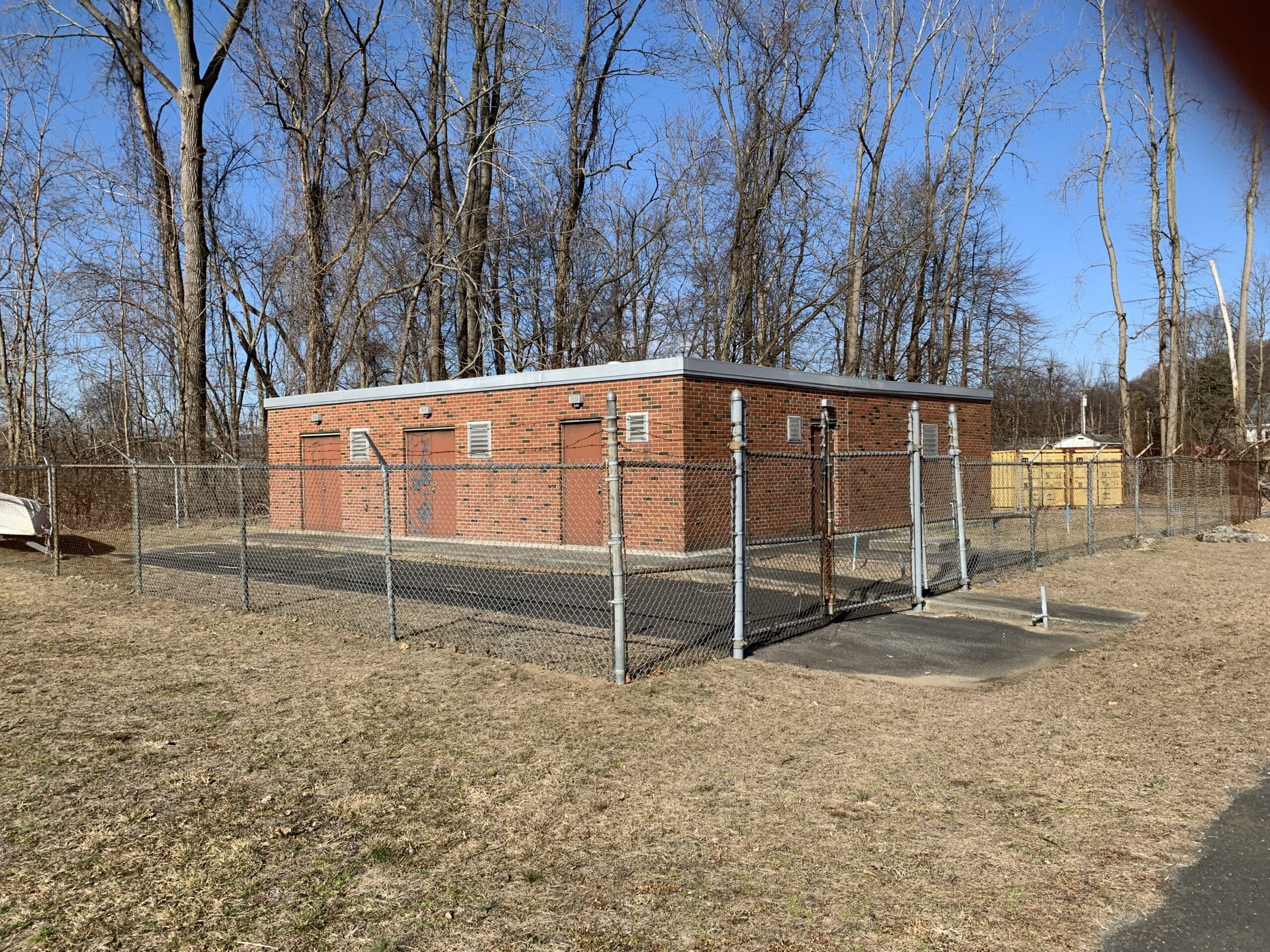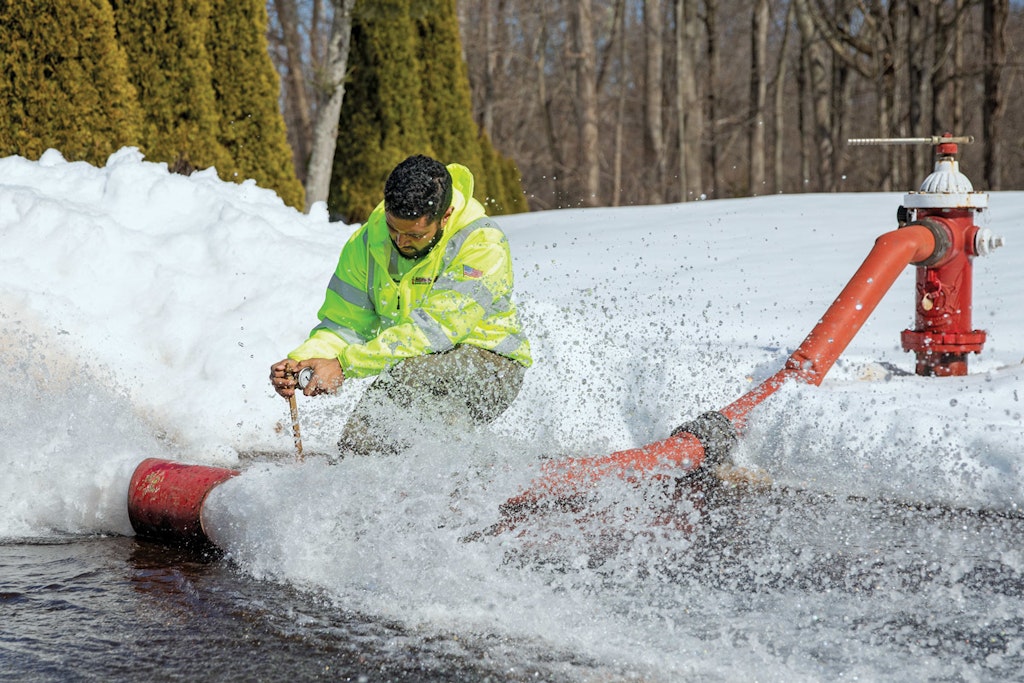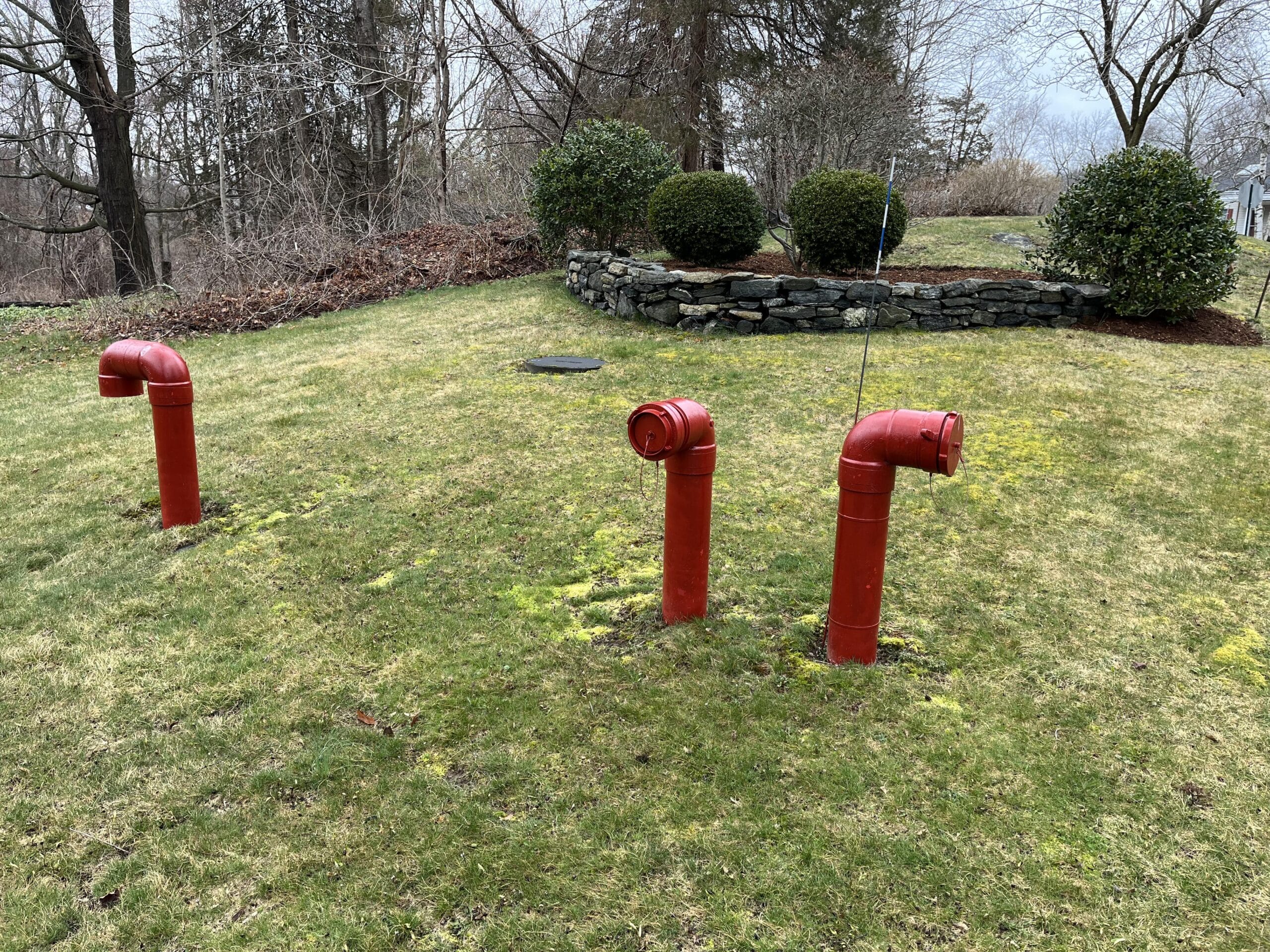Water Treatment Plant, Amherst, MA
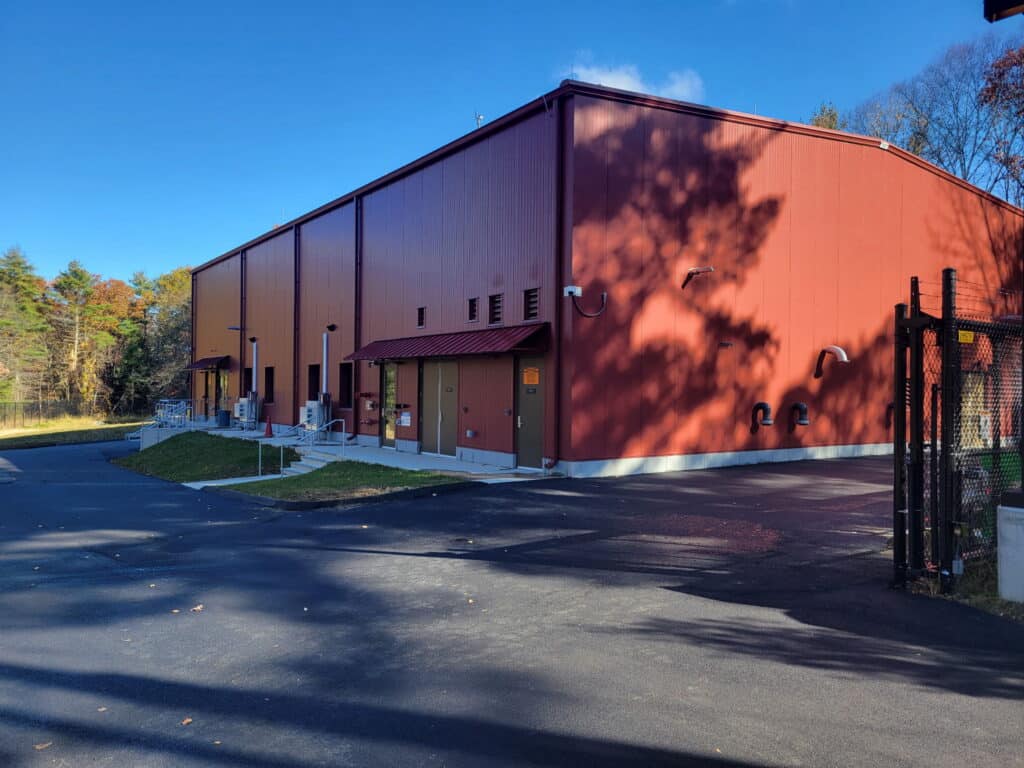 Tata & Howard contracted with the Town of Amherst for design, permitting, bidding, and construction administration of the 1.5 million gallon per day (MGD) Centennial Water Treatment Plant (WTP) to treat surface water from the Pelham Reservoir System. The existing Centennial WTP, located in the Town of Pelham but supplying the Amherst Public Water System, has a history of issues with turbidity, color, and disinfection byproducts in the form of total trihalomethanes (TTHM) and haloacetic acids (HAA5) because of high levels of organics in the Pelham Reservoir System. Due to the age and condition of the existing WTP, the filters which were the primary treatment process at the existing WTP were no longer effective at removing organics, leading to a decrease in finished water quality and total WTP capacity. The existing Centennial WTP has been offline since 2018 due to water quality, as well as infrastructure concerns related to a lightning strike which impacted pumping equipment and communications at the Centennial Water Treatment Plant’s raw water pump station.
Tata & Howard contracted with the Town of Amherst for design, permitting, bidding, and construction administration of the 1.5 million gallon per day (MGD) Centennial Water Treatment Plant (WTP) to treat surface water from the Pelham Reservoir System. The existing Centennial WTP, located in the Town of Pelham but supplying the Amherst Public Water System, has a history of issues with turbidity, color, and disinfection byproducts in the form of total trihalomethanes (TTHM) and haloacetic acids (HAA5) because of high levels of organics in the Pelham Reservoir System. Due to the age and condition of the existing WTP, the filters which were the primary treatment process at the existing WTP were no longer effective at removing organics, leading to a decrease in finished water quality and total WTP capacity. The existing Centennial WTP has been offline since 2018 due to water quality, as well as infrastructure concerns related to a lightning strike which impacted pumping equipment and communications at the Centennial Water Treatment Plant’s raw water pump station.
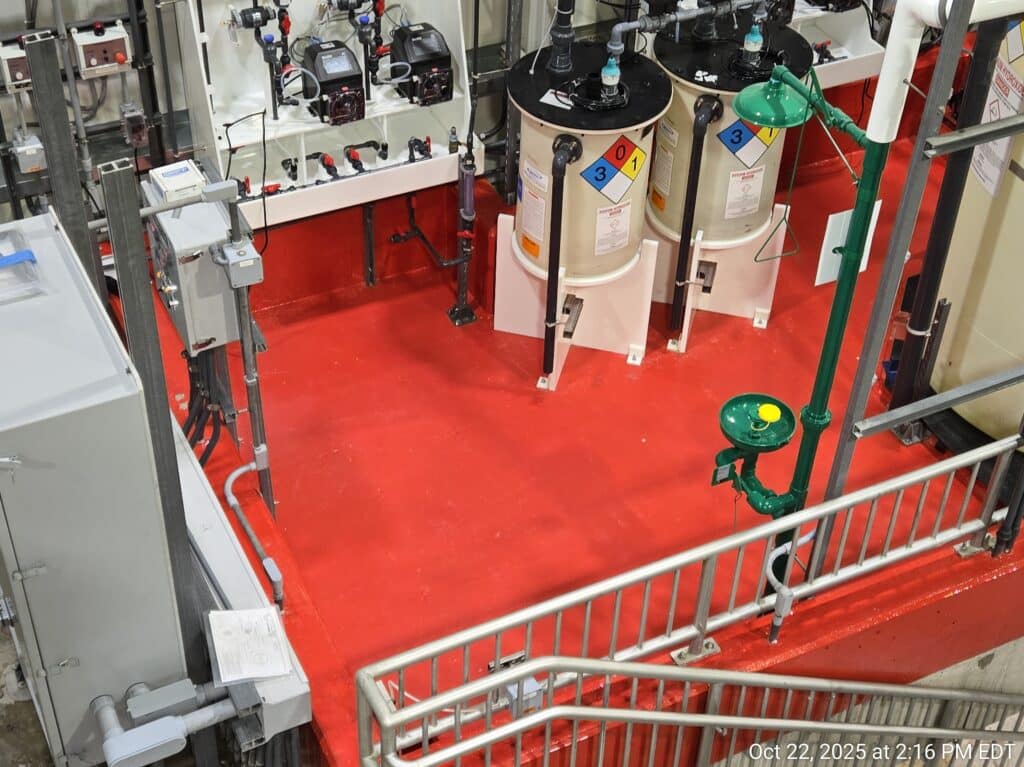 Based on the results of the pilot study performed by the Town of Amherst, Tata & Howard completed design of the new Centennial Water Treatment Plant including dissolved air flotation (DAF) clarifiers and granular activated carbon (GAC) filtration for treatment of organics, color, turbidity, and low levels of iron and manganese. The DAF system includes polyaluminum chloride for coagulation, two rapid mix chambers, and three package DAF units which each include two high rate flocculation chambers, two low-rate flocculation chambers, a saturation tank, effluent collection system, discharge weir, mechanical skimmers and beach, and associated appurtenances and controls. Three dual media filter chambers with a silica sand/course garnet base layer and GAC above are located downstream of the DAF units, prior to final chemical addition.
Based on the results of the pilot study performed by the Town of Amherst, Tata & Howard completed design of the new Centennial Water Treatment Plant including dissolved air flotation (DAF) clarifiers and granular activated carbon (GAC) filtration for treatment of organics, color, turbidity, and low levels of iron and manganese. The DAF system includes polyaluminum chloride for coagulation, two rapid mix chambers, and three package DAF units which each include two high rate flocculation chambers, two low-rate flocculation chambers, a saturation tank, effluent collection system, discharge weir, mechanical skimmers and beach, and associated appurtenances and controls. Three dual media filter chambers with a silica sand/course garnet base layer and GAC above are located downstream of the DAF units, prior to final chemical addition.
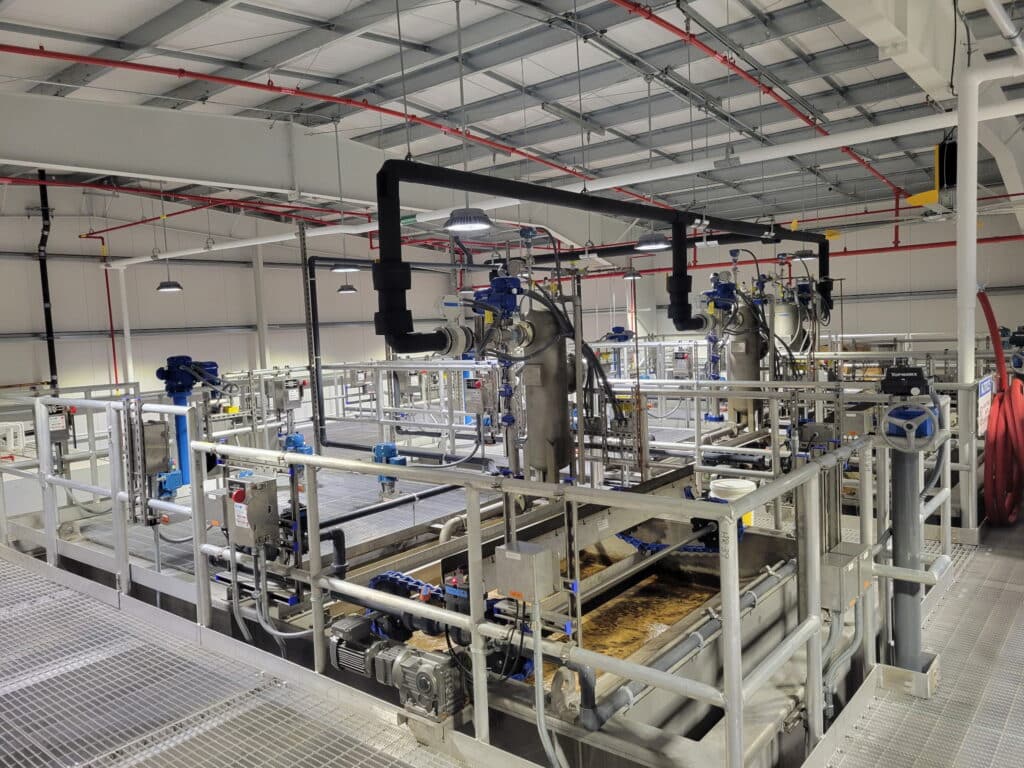 Additional chemical feed includes a gaseous chlorine system for disinfection, gaseous ammonia for chloramine formation, sodium fluoride for dental health, and sodium hydroxide for pH adjustment and corrosion control. The new facility also includes an advanced Supervisory Control and Data Acquisition (SCADA) system for automated control of the water treatment plant. Operators for the Town of Amherst will be able to remotely monitor and control operation of the Centennial WTP, through a recently extended town fiber optic cable network.
Additional chemical feed includes a gaseous chlorine system for disinfection, gaseous ammonia for chloramine formation, sodium fluoride for dental health, and sodium hydroxide for pH adjustment and corrosion control. The new facility also includes an advanced Supervisory Control and Data Acquisition (SCADA) system for automated control of the water treatment plant. Operators for the Town of Amherst will be able to remotely monitor and control operation of the Centennial WTP, through a recently extended town fiber optic cable network.
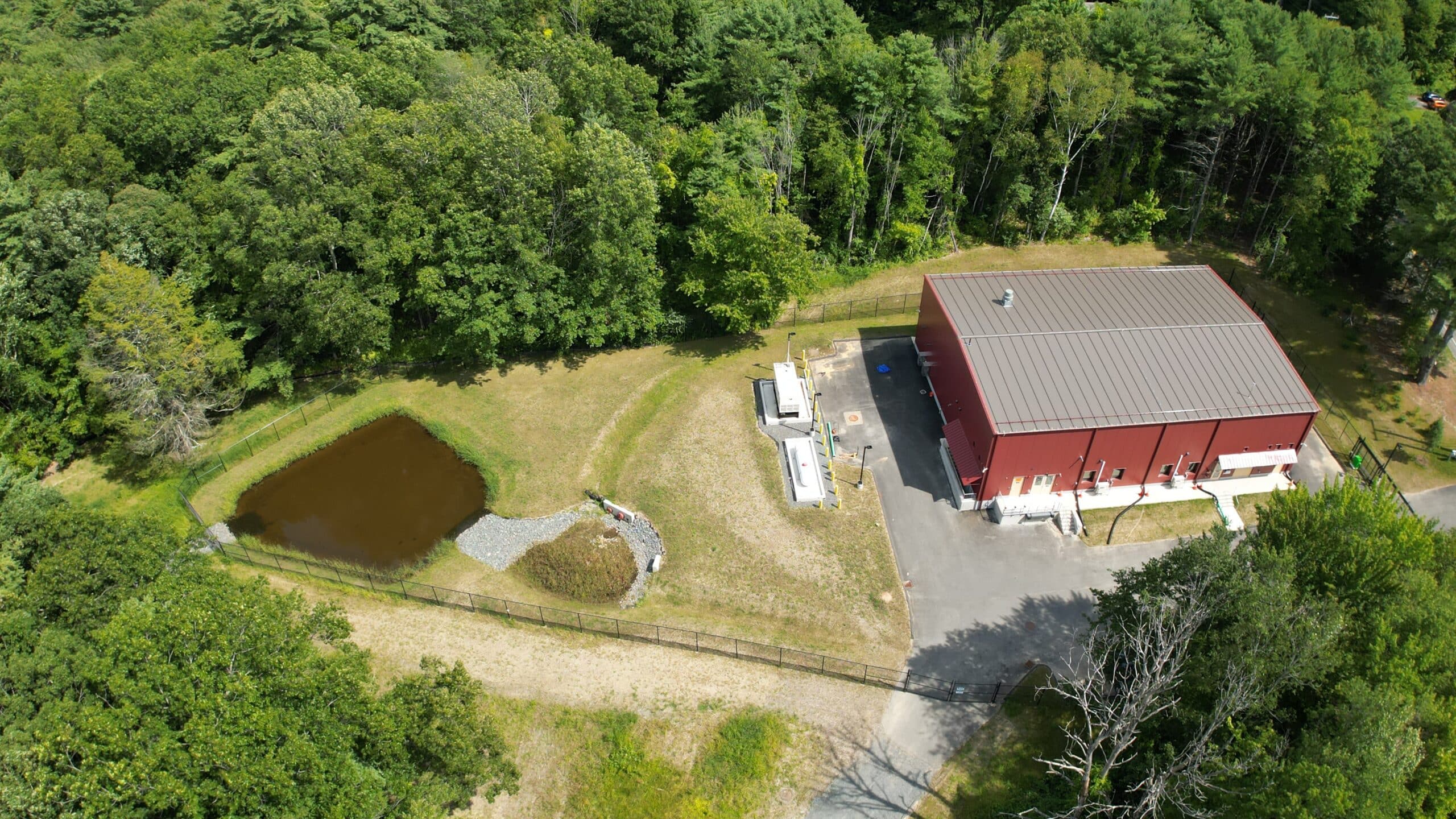
The design of the Centennial WTP included provisions to maintain the Amherst water distribution system, as even with the Centennial WTP offline, the clearwell of the existing facility also serves to maintain pressure in a small portion of the water distribution system between the Centennial WTP and a booster pump station. The Centennial WTP feeds the majority of the water system (excluding the portion between the WTP and the booster pump station) by gravity. Since the existing WTP including the clearwell was demolished prior to construction of the new WTP, design and construction of the new WTP included temporary water storage tanks to maintain pressure and keep all connections active in the high service area of the Amherst Public Water System.
Permitting for this project included a BRP WS 24 New Treatment Plant application with MassDEP, Site Plan Review with the Pelham Zoning Board of Appeals, and a Request for Determination of Applicability (RDA) with Pelham Conservation Commission.
The Centennial Water Treatment Plant was bid and awarded to R.H. White Construction Co. of Auburn, MA for a contract amount of $18,876,000, and the project received funding though the Drinking Water State Revolving Fund program. Construction was completed and a ribbon cutting ceremony was held in October 2025.




